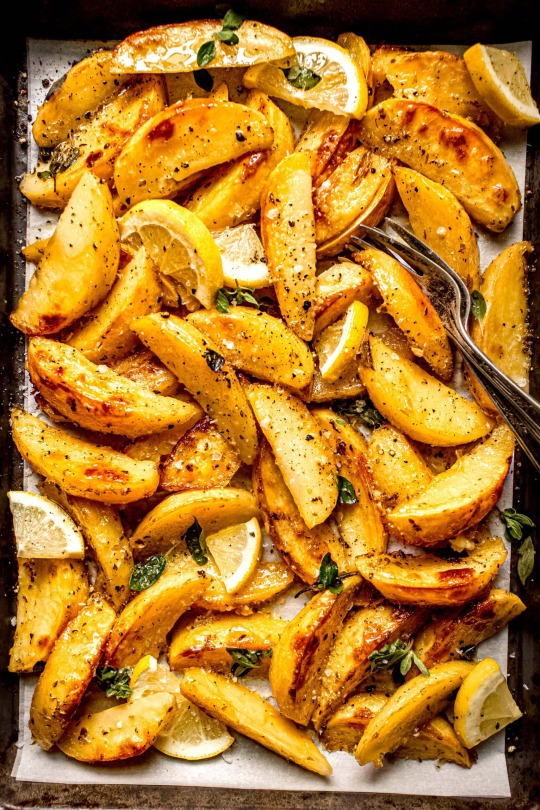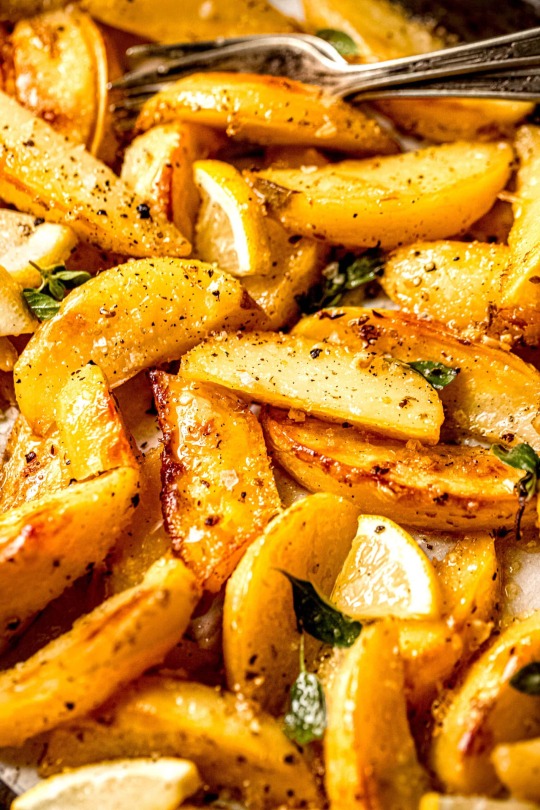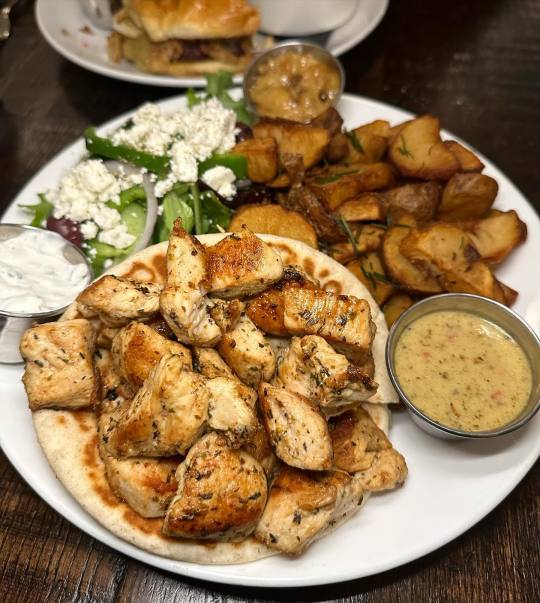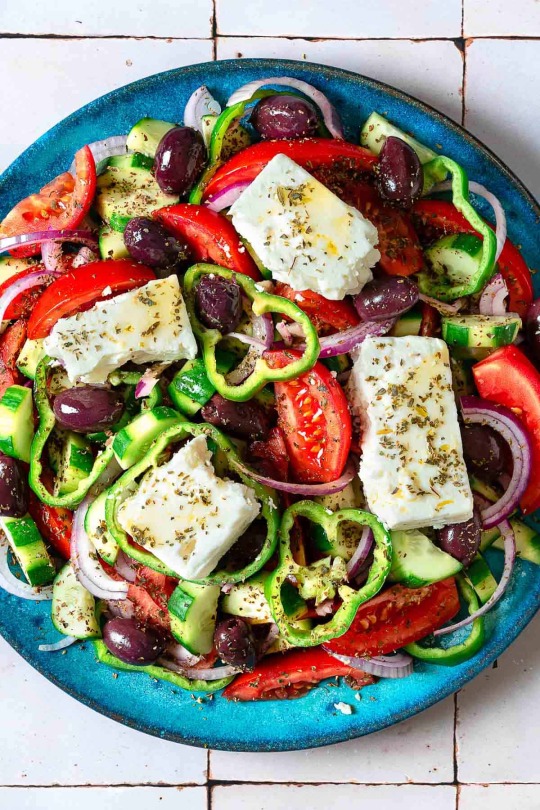#greek food
Explore tagged Tumblr posts
Text


Greek roasted potatoes
#potatoes#roasted potatoes#potato wedges#potato#food#roast potatoes#dinner#side dish#lemon#greek food#vegetables#comfort food#easy recipes#tasty#foodporn#delicious#cooking#food photography#foodgasm#recipes
1K notes
·
View notes
Text

Lemon Chicken Skewers with Creamy Feta Sauce
#Lemon Chicken Skewers with Creamy Feta Sauce#lemon chicken#skewers#feta#chicken#appetizer#lunch#dinner#dining and entertaining#party food#greek food#mediterranean food#kitchen#cooking#december#fall#winter#toya's tales#style#toyastales#toyas tales#foodporn#foodpics#food photography#foodie#food porn#food pics#food
449 notes
·
View notes
Text

Gryos, greek
IG : @pitagr
897 notes
·
View notes
Text
I may be biased, but mediterranean food is just on another level ✨










This post made me a bit emotional.
#health and wellness#glow up#fitness#it girl#that girl#weight loss#fitblr#wellnessjourney#wellbeing#fresh food#whole foods#diet#mediterranean#dieta mediterranea#greek food#turkish#maghreb#italian#foodpics#food photography#foodie#food#healthy food#foodporn#healthy recipes#eating healthy#healthylifestyle#healthyliving#clean eating#fresh veggies
320 notes
·
View notes
Text

306 notes
·
View notes
Text

(via Instagram)
399 notes
·
View notes
Text

Roasted Veggie Tzatziki Bowl
99 notes
·
View notes
Text
6+ traditional "humble" Greek foods that are fading
Below are six recipes or foods that were very loved until the previous century, especially amongst the people of low income. These recipes used very cheap ingredients and helped keep people's hunger satiated. A few new cooks are trying to revive those recipes.
Bobota
Also known as "pie / bread of the poor", bobota was made of corn instead of wheat flour, salted water and olive oil, and occasionally eggs or some filling, if those were available. According to some articles, bobota saved a lot of people during the times of the Axis occupation of Greece.

Bobota with feta cheese.
Petimezi and Threpsini
Unlike the common current sweet spreads like hazelnut pralines (i.e merenda, nutella) that are loved today, during the previous century people would eat their bread by spreading petimezi (molasses) or threpsini (grape cream) on it. It was the most popular snack kids took with them at school in the 50s-60s and it was very nutritious.

Threpsini spread.
Zaharópsomo
For those who could not afford pastries, zaharopsomo was their alternative and it was exactly what the name suggests; bread slightly moistened and sprinkled with sugar. Nowadays zaharopsomo recipes have become a little more refined and it is eaten during the most important fast of the year, that of Great Friday.

Tsigarides
Pork is the traditional delicacy for the Christmas holidays. In the rural areas until the previous century families would have a pig, which was eaten on Christmas day. No edible part of it would go wasted and fat remnants were preserved in water and salt, in a process that made them similar to bacon. Tsigarides could be kept for long, even for the full year until the next Christmas.

Plighuri and Trahanás
Plighuri is bulgur. Trahanas might be known better in English as tarhana, but historians are indecisive on whether the etymological origin comes from the Persian tarhana or the Greek trahanas (pro-Greek speculations link it to the words trahýs or traghanós, meaning rough, coarse in texture). In any case, both are very popular foods of the East Mediterranean, Central and Southwestern Asia. In fact, plighuri and trahanas were the most common dough-y (?) types of food Greeks ate until they were replaced by rice and spaghetti in the last decades. Nowadays, plighuri and trahanas are making slowly a comeback as more and more famous chefs are incorporating them to their dishes as the evolution of the Greek cuisine has been getting a "back to the roots" vibe lately.

A soup with trahanas.
Revythópsomo
Literally meaning chickpea bread. During the Axis occupation of Greece, chickpeas were used as substitutes to a lot of things, even coffee beans! Yep, a chickpea drink was at the time about the closest option Greeks had to feel like they were drinking coffee. With the chickpeas, olive oil and a tiny portion of flour, they would make chickpea bread which was also a saviour to them in those hard times.

A sandwich with a chickpea bread.
Source
#greece#food#cuisine#recipes#greek cuisine#greek history#mediterranean cuisine#greek food#mediterannean food
71 notes
·
View notes
Text
Greece 🇬🇷🇬🇷🇬🇷🇬🇷

214 notes
·
View notes
Photo

Greek Salad (Traditional Horiatiki Recipe) | The Mediterranean Dish
#salads#Greek food#Mediterranean diet#recipes#Greek salad#healthy eating#nutrition#healthy lifestyle
144 notes
·
View notes
Photo

Rosemary chicken and avocado bacon pitas with honey feta sauce
#chicken#bacon#avocado#sandwich#food#pita bread#tomatoes#feta#rosemary#lettuce#healthy recipes#greek cuisine#greek food#easy recipes#foodporn#delicious#cooking#food photography#foodgasm#recipes
770 notes
·
View notes
Text

Vegan Kofta And Tzatziki Sauce (Easy Seitan Shish Kebab)
#savoury#kebab#kebabs#lunch#kofta#koftas#tzatziki#street food#recipe#recipes#Greek cooking#Greek food#Greek recipes#easy recipes#vegan recipe#vegan recipes#veganrecipe#veganrecipes#govegan#go vegan#meat is murder#meatismurder#animal rights#animalrights#animal liberation#peta#farm animals#food#vegan#vegetarian
42 notes
·
View notes
Text








Creta, giorno sei
76 notes
·
View notes
Text








Trying to stay ahead of the next Deipnon on July 5th, so I made some Greek flatbreads to freeze that I’ll defrost the day of. I’m not sure if I’ll make a full meal, but I knew I wanted to make bread. It’s still hotter than Hades here so I needed a bread that didn’t require a hot oven, and these are made on a griddle or pan on the stove top. I’m the laziest baker in the world so these are really easy to make and quick too. Here’s the recipe if you want to make them too:
1.5 tsp dry instant yeast
2 cups lukewarm water
2 tablespoons olive oil plus a little more to oil skillet
1 tsp sugar
3.5 cups all purpose flour plus more for dusting
1 tsp salt
In your mixer add yeast, water and sugar. Stir and let it sit until yeast blooms, about 5 minutes.
Add olive oil, flour, and salt. Mix on medium low speed for 10 minutes until dough is soft, smooth, and pliant. Shape into a ball and coat with a tsp of olive oil. Cover and let double in size, about an hour.
Turn out onto a lightly floured surface and cut into 9 pieces. Shape each piece into a taut ball and cover with a towel. Let rest about 10 minutes.
Roll into circles, about 1/8 inch thick. Heat your griddle or skillet and brush the surface with olive oil. Put your rolled dough on the hot skillet and brush top side with oil. If bubbles form, poke them with a fork. When the bottom is light golden, flip and cook the other side. Repeat with your other dough balls. Cool on a cooling rack.
118 notes
·
View notes

